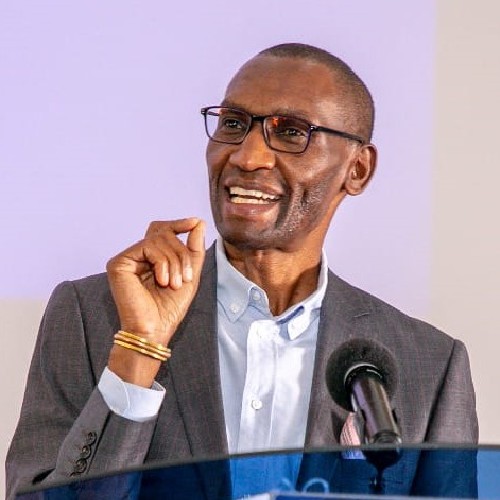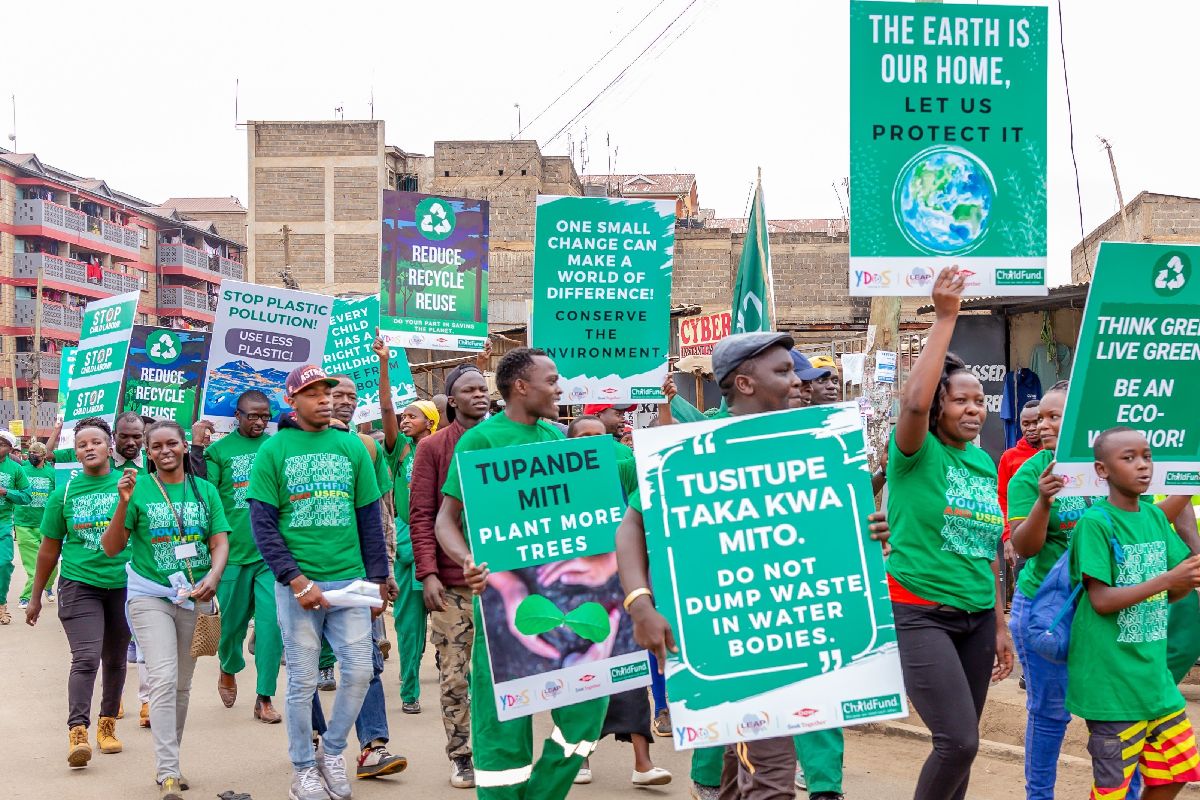
Chege Ngugi

Youth participating in a climate change awareness rally in Kasarani Constituency, Nairobi County.
Our youth deserve more than a seat at the table
The youth have the power to take public matters into their hands and use their collective power to be the change they want. After all, they are the majority, they are stronger and more energetic, with dynamic new ideas.
The youth are not the future; they are the present. Africa is the youngest continent with 70% of sub-Saharan Africa under the age of 30. Some 20% of the world’s youth reside in Africa with the number projected to double by 2030. This presents great opportunities that can boost the continent’s growth – but only if the youth are fully supported to realize their full potential.
To appreciate the potential young people have, we have to only look at how they have actively shaped Africa’s technology landscape. Most of the remarkable innovations today were created by young people. For example, M-Pesa, the world’s leading mobile money platform is said to have been invented by a young Kenyan. The African Tech Startups Funding Report shows that 2021 was a record-breaking year for Africa’s technology start-up scene with 564 businesses securing $2.14 billion in funding. The majority of these businesses are owned by Africans under the age of 35.
Imagine how much more these brilliant minds could do for our continent and for the world if fully supported by all stakeholders across the ecosystem.
Increasingly, many actors are making efforts to create platforms to promote youth voices, especially in governance and civic engagement, participation in budget decision-making processes, and advocating for policies that reflect their interests. Initiatives such as Kenya’s Youth Fund and Uganda’s Youth Livelihood Program to promote youth enterprise development as a critical strategy for increasing economic opportunities are other innovative ways of opening doors for meaningful youth participation as leaders, influencers, service providers, researchers and peer educators in politics, business and civic activism.
However, while many laudable initiatives exist, there is still a dire need to do more to ensure all youth, given the huge number, are adequately resourced to achieve their best potential, no matter where they are from.
With many competing demands for scarce resources, most governments fail to allocate adequate resources and make substantial investments in youth-focused programs. Without adequate opportunities, youth contribute to the costly problems that plague our countries today, such as crime, violence, alcohol and drug abuse.
To change this narrative, we must move beyond giving the youth ‘a seat at the table,’ to investing in them to use that seat for good. Youth participation is not just a matter of programmatic relevancy, nor should it be a tokenistic endeavor. If we cannot put our money where our mouths are, then giving youth a seat at the table becomes some meaningless, trendy buzzword that translates to zero impact.
Fundamental principles of inclusivity demand youth participation be intentionally moved from words to action. Young people must be enabled to act as equal partners of positive social change, not merely as ‘agents of change.’ Youth must be acknowledged as leaders, experts, influencers, and service providers in their respective fields of expertise. There is a lot to learn from this generation.
Moreover, the need for legislation cannot be over-emphasized. Governments must implement laws and policies that prioritize the youth’s needs and create enabling environments for them to thrive. In addition, our education programs need to be reimagined to nurture the entrepreneurial spirit of the youth in order to tap into their energies for good.
As we commemorate this year’s International Youth Day (August 12), ChildFund is partnering with Leap Africa, Dow and various governments to support youth in 24 African countries to celebrate the Youth Day of Service (YDOS). This day is designed to harness the agency, creativity, and voices of the youth for the actualization of Sustainable Development Goals (SDGs) by equipping them with the resources, skills, and tools for personal and community transformation. In line with this year’s theme, ‘Green Skills for Youth: Towards a Sustainable World” the youth will engage in various programs focusing on mitigating the impact of climate change and promoting entrepreneurship.
Failing to adequately invest in youth is a recipe for failure. We can and must do more for our young people. This is the only way we can reap great dividends from their energy and innovation to drive Africa’s socio-economic growth and development.
This article was first published by The Daily Nation.




